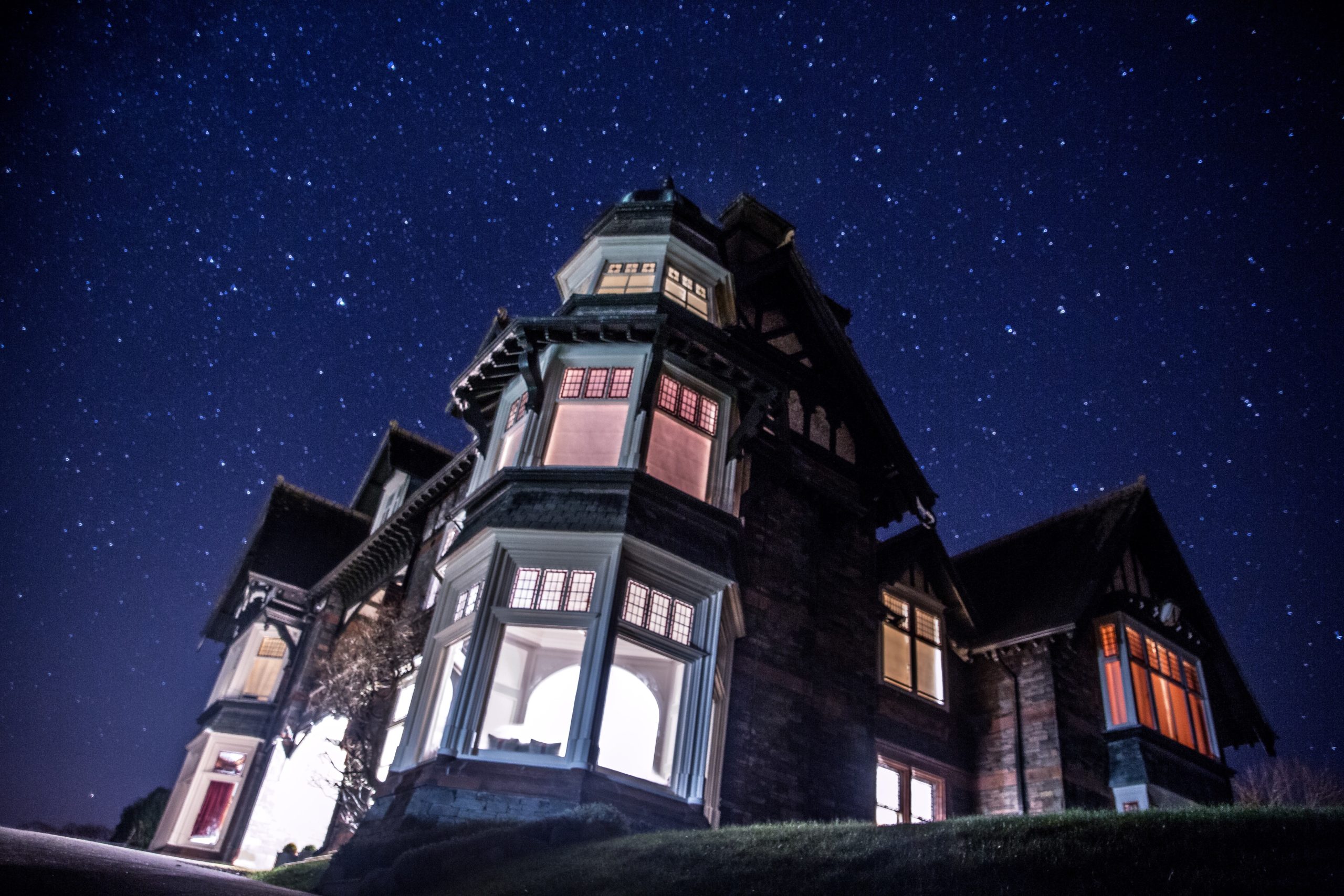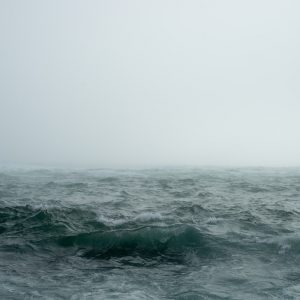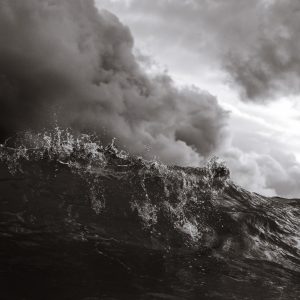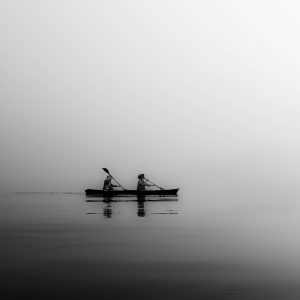Midnight; there is no more perfect hour to explore an aging, seaside manor such as Rosebrae. The heir has awaited this moment since his and his wife’s arrival that afternoon. (Pity, they did not make it in time to bid his dying uncle farewell.) Now there is purple country night in the windows, and when he says, “Come, darling,” she follows him, never quite trusting his mood.
The heir puts a milk-white candle in her hand and another in his own. She watches the match-flame as he lights them, the flare glinting off the wet of his eyes, and he becomes like those creatures of the deepest deep, predator fish who wink and beguile with the barest promise of light.
Certain oddities they uncover right away: a cache of cannibal-erotic drawings, voluptuous mermaids devouring young sailors alive; a ripped portrait of the uncle at sea; and a room of nothing but mirrors, standing, hanging, even a scatter of intricate handhelds across the rug, all face-up, creating slender pools of ceiling over the floor.
“What was that?” whispers the wife. There is the strangest gurgling in the walls.
“Didn’t I tell you?” says her husband. “Uncle was experimenting again.”
The experiment, she learns, is that modern fascination of indoor plumbing.
“Water in the walls?” says the wife. She touches the wall nearest her and gasps when the material ripples beneath her finger as might the face of a pond.
“It’s a tapestry, dear,” her husband says, and of course he’s correct. How silly of her. “A small fortune,” he laments. “All for miles of pipe no one can see.”
Apparently, there was a letter—the wife is learning many things this evening—from this uncle, some time ago now, (before he was dead), explaining that the water was for the house. “‘So that my dearest Rosebrae might breathe.’” Her husband’s grin floats between their candles. “I should’ve had the old man committed.”
They venture deeper, next into the larder, then down a musty corridor descending into a catacomb, a library, a parlor, a workshop. And every time the walls moan, every time the wife startles and says, It sounds like a voice, like someone speaking underwater, the heir squeezes her nape and replies, It’s only the pipes, little wife.
At last, they reach a toilet chamber. But that can’t be its name. The Waste Room? wonders the wife. The Water Room?
The Breathing Room, she decides.
Narrow and wood-paneled, the room is fixed with a sink and mirror, a sconce for a candle. The sink has been left running, water rushing away in a strange, simple miracle. The heir reaches to turn the faucet off, but “Oh no, should we?” says his wife. She smiles a little. “How else is the house to breathe?”
But the faucet is under his hand, squeezed and wrung and silenced, and there’s nothing more to say.
The toilet is a porcelain bowl set into a smooth wooden bench with a heavy cord dangling from the ceiling. The white bowl is painted with a pink country scene—trees and flowers, birds and deer—and in the center: a black, whistling hole.
That sound—no, it’s not a whistle.
Against her better judgment, the wife leans in closer to listen.
Somewhere, deep within, comes an echo, not unlike that from a game she played as a girl, her voice traveling a taut string to the cup pressed close to her friend’s ear, sharing secrets.
Rosebrae, a whisper even in her mind, is that you?
The heir shoves her down, as if to smash her head against the bowl. The wife gasps, cries out, her hands scrabbling to grip the wooden bench. “Oh darling,” her husband laughs, releasing her. “So quick to startle.”
The wife looks down through the whistling hole, the one that took her cry and piped it away to ears unknown. Her fingers tremble and she waits for her husband to leave. She tries steadying herself in the mirror, smoothing wrinkles, a stray tear, but the glass moves silverly in the candlelight and the walls groan around her. “I’m sorry,” she whispers to them. “I have to go.” Yet some compulsion has her glancing to the hall, listening for her husband’s heavy footstep, and twisting the faucet back to life.
#
The wife wakes in the night to the sound of rushing water. She looks over the edge of their bed and falls a thousand feet into a churning sea.
She looks over the edge of their bed and sees the heir’s uncle in the shadows, pulsing gills slashed across his neck.
She looks over the edge and her husband’s hands lurch up for her throat.
She looks over the edge and into her own rippling eyes, the floor an endless mirror pool.
She looks over the edge and finds herself alone, her husband no longer abed. Their chamber door standing open.
In her night-rail, a candle in lieu of sword or shield, she moves to the darkened hall. She wonders about the running water, if he’s found it already, if he knows, if he’s waiting. She recites the Lord’s prayer and, though she is not religious, it calms her.
She takes the first turn toward The Breathing Room, except the hall doesn’t have the quality of a turn; no, it is more of a bend. More of a fish’s fluid body slinking around her. She touches the knob, opens the door, and there: her husband, naked and half-eaten on a divan, his chewed arm dangling toward a mirror spilled across the floor. A scaled woman lounges within the watery glass, smiling as she sucks the blood from his fingers.
#
The wife closes the door. The heiress opens it again.
#
A plain empty room. A toilet, a trickling sink.
She moves numbly to twist both faucets, to turn them as far as they will go. The pipes sputter a moment, coughing, clearing their throat, and yes, thank God. A gush of water. She can breathe.




